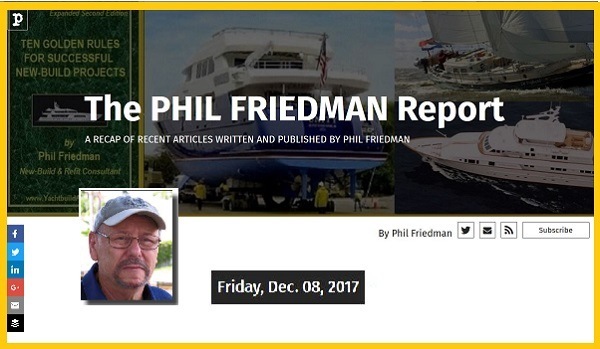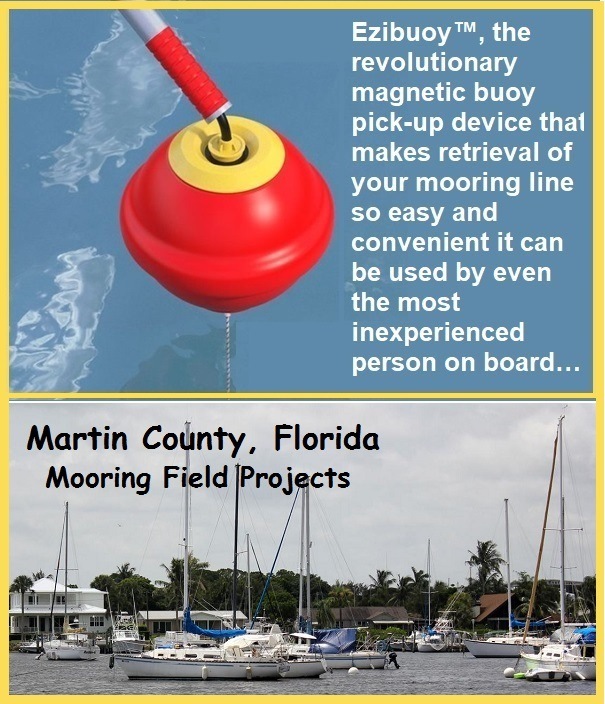LinkedIn Users: Looking for Love in All the Wrong Places

Preface: This is the fifteenth installment of this series by Jim Murray and me. We’ve kept at it, because the response in terms of readership and engagement continues to be gratifying. In fact, we've expanded it's exposure and accumulating following, by now simultaneously publishing it on both beBee and LinkedIn. If you like what you read, let us know. And if you disagree with what one or both of us says, be sure to let us know. For intellectual engagement is what it's all about.

To me, LinkedIn is like a million acres of swampland right in the middle of the Okefenokee Wildlife Refuge. Nothing but brackish water, quicksand and a maze of rivers that you can get lost in very easily.
Add to that the massive migration of writers and group owners evacuating the premises, a declining number of paid members and a stock price that’s just standing out there on the edge of a thousand-foot cliff, and you really have to admire the chutzpa of the Hoffman and Weiner or simply shake your head at the stupidity of a massive software company trying yet another lateral move.
My first instinct, and I tend to base most of my decisions in life on that sort of thing, was well, there are 400 million plus fish floating around in this fishbowl. How many are just floating all dead and bloated on the surface, is anybody’s guess. But my thinking is that Microsoft is buying a database. And the main thing that people use those for is selling advertising.
So I guess, from my point of view, it’s tantamount to buying a subscription list for a magazine or whatever, only on a really horking big scale.
I’m sure you will have another take on this, because as dad used to say “Differences of opinion are what make horse races”.

What’s does that have to do with your question? A lot.
As I see it, virtuality — as opposed to virtuosity — has wrought a huge change in business. Internet-based enterprises exhibit a relatively very low ratio of “hard” assets to net worth. In other words, living in a virtual world means their value is somewhere in “The Cloud”, certainly nowhere on earth. And their “value” is about as corporeal as… smoke. Which is something being demonstrated by the Microsoft-LinkedIn deal. Value in the case of Internet-based companies is almost entirely a psychological matter, and is always in the eye of the buyer.
A full day before Time and Forbes magazines published articles questioning the ostensibly huge price being paid by MS for LI in a case of OCD, yours truly published a piece on LinkedIn and beBee titled “Why Are These Guys So Happy? — Because They've Sold LinkedIn to Microsoft for More Than Ten Times What It Seems to Me to Be Worth.” Reader reaction to that piece surprised me more than just somewhat.
Self-appointed apologists for the deal came out of the woodwork, with a wide variety of valuation theories, most of which amounted to little more than sticking a pencil in your ear, standing on one foot, and picking a price out of… The Cloud.
But here’s something to consider. Many believe, and I agree, that the primary target of the acquisition is LI’s data base of nominally 440 million users. If that is true, and if the valuation for purchase is, in fact, based on so much being paid per member record, we can anticipate with virtual certainty that the $26.2 billion number is contractually subject to adjustment pre-closing, based on due-diligence verification of user status. In other words, if it’s true that the percentages of active users and non-faked profiles to the total claimed LI population is low, you are going to see a closing price significantly less than the nominal purchase price currently being bandied about.
Of course, in the meantime, the “news” has sent the LNKD share price shooting up nearly 45% in less than four days — a spike that began just before the formal announcement, no doubt as the result of the Insider-Trading Jungle Telegraph cranking up. And I wouldn’t be surprised if Wiener and Whopper aren’t quietly selling off shares as we speak — as from reports, Wiener apparently did with $13 million worth during the third and fourth quarters of 2015.
All part of the Wall Street Parimutuel Betting action.

As far as the deal that’s going down…well that’s out of my snack bracket. But as a marketer, I can see exactly what’s going on. Microsoft is buying carbon units to schlep their products, services and advertising to.
But doesn’t this all reside under the same 1% ROI turd as every other Internet marketing venture in the known universe, with only a few notable exceptions?
When you pay 26 billion bucks for something, or let’s call it 20 billion after Microsoft discovers all the bum steers in the 440 million LI user base, don’t you have to sell way more than 20 billion bucks worth of your shit or advertising for other people’s shit to make this thing worth doing in the first place.
And isn’t that gonna cost money to do?
And don’t you have to do that pretty quickly, because the interest on a 20 billion dollar loan adds up too, regardless of the tax benefits.
I’m not saying that Microsoft has bit off more than they can chew. But it sorta kinda feels that way.
On the other hand, it’s none of my business, because I don’t give a rat’s ass about either one of these companies. I work mostly in Pages which is the Mac equivalent of MS Word, and blog on BeBee.
I can only quote Dylan, as I am wont to do: “People are crazy and times are strange, I’m locked in tight, I’m out of range. I used to care, but things have changed”.
I wish the Weener and the Hoffer and whoever is the head dweeb at Microsoft all the best. But at the same time I offer my sympathies to any active LI member who isn’t hedging his or her bets right now. Especially the bloggers and group owners.
Because I think the hammer is coming down on any ‘free’ services here.

Membership is never free on LinkedIn, nor for that matter any other social media platform. Notwithstanding the party line, what happens is you barter your personal and professional information in exchange for membership and use of the platform. Then the platform ownership and management merges your and other people’s data into as large a database as they can build, and they sell access to that database of personal and professional information as many times over and over again, as they can.
It is precisely the concocted misperception of “free” that turns social media “members” into Eloi for the Morlocks of social media management to feed upon, ala H.G. Wells. To paraphrase Bobby McGee, free is just another word for nothing left to lose… when guys like Wiener and Whopper are done with you.
Still, as to whether it the impending take-over makes LinkedIn a sustainable proposition or not is, I submit, anybody’s guess. And “guess” is exactly the right term.
Business has changed with the arrival of the “Virtual Age” and Internet-based operations. Beside the more obvious changes, I see a single pivotal difference in the way business is done these days versus how it used to be done: Profit is no longer king, and the knave of Cash Flow has taken its place of royal prominence, or more aptly put, dominance.
The common business plan in the dot.com arena is to grow a start-up until it can be taken public in an IPO, then cash in on stock share price growth, and finally grab the money and run. Who cares if the company is making money? As long as it can generate sufficient cash flow — in the form of gross revenue plus a continual inflow of new capital investment — it can avert foreclosure by creditors, and it’s good to go, until the final step in the exit plan can be implemented.
The hard truth is that nobody cares that a company is not profitable. Or that it doesn’t even have a chance of ever being so. Because everybody is too busy placing their bets at the Wall Street Parimutuel window, hoping to ride a dark horse long enough and far enough to make a safe (read profitable) dismount, before it stumbles and kills itself — and maybe its rider.
For this reason, concepts such as delivery of fair value, and genuine concern for customer satisfaction, have given way to CRM — customer relations management. Which in the vast majority of cases these days, and certainly in LinkedIn’s case, is code for snow ‘em until you can blow ‘em up.
And if you think that guys like Wiener and Whopper are concerned with your well-being as a customer, then you truly are looking for love in all the wrong places.
Author's notes: Jim Murray can, and always will speak for himself. So direct any hate mail to him at his beBee address.
As for me, if you'd like to receive notifications of my writings on a regular basis, click the [FOLLOW] button on my beBee archive page. As a writer-friend of mine says, you can always change your mind later.
Feel free to "like" and "share" this post and my other LinkedIn articles — whether on LinkedIn, Twitter, Facebook, or Google+, provided only that you credit me properly as the author, and include a live link to my original post.
About me, Phil Friedman: With 30 some years background in the marine industry, I've worn numerous hats — as a yacht designer, boat builder, marine operations and business manager, marine industry consultant, marine marketing and communications specialist, yachting magazine writer and editor, yacht surveyor, and marine industry educator. I am also trained and experienced in interest-based negotiation and mediation. In a previous life, I taught logic and philosophy at university.

To schedule an appointment for a free 1/2-hour consult email: info@learn2engage.org.
Text Copyright © 2016 by Phil Friedman — All Rights Reserved
Images Credits: Phil Friedman and Jim Murray

Articles from Phil Friedman
View blog
A RECAP OF RECENT ARTICLES WRITTEN AND PUBLISHED BY PHIL FRIEDMAN... · Thanks to Don Philpott☘️ whos ...

"[By] the use of mooring facilities, boaters don’t unintentionally harm seagrass beds with their anc ...

WILL KICKING BUTT IN THE U.S. HOUSE OF REPRESENTATIVES BE A STEP FORWARD OR TWO STEPS BACK? · Prefac ...
Related professionals
You may be interested in these jobs
-
Patient Access Rep I
Found in: Lensa US 4 C2 - 4 days ago
Alta Hospitals Yorba Linda, United StatesThe Patient Access Rep I arranges for the efficient and orderly admission of all inpatients and outpatients. Ensures that accurate patient information is collected and that patients are aware of hospital policy and procedures.Foothill Regional Medical Center is a fully accredited ...
-
School SLP, Happy Valley OR
Found in: Ziprecruiter Test15 US C2 - 3 days ago
Soliant Happy Valley, United StatesJob Description · Job DescriptionMinimum 1+ years speech therapy experience required. · Calling on SLPs based in the area of Happy Valley, OR: Soliant is working with a local school, and we're seeking applicants for a position for the remainder of the year. · We seek applicants w ...
-

Medical Technologist or Medical Laboratory Technician or MT ASCP or MLT ASCP in Ohio
Found in: One Red Cent US C2 - 3 days ago
KA Recruiting Inc. Dresden, OH, United StatesLooking for a new Med Tech job? My name is Leah and I'm a healthcare recruiter, I'm here to help · I have an awesome Med Tech role available near Adams Mills, Ohio · Details · - Full-time and permanent · - Shift: Discussed during interview · - Opportunities for growth · - F ...


Comments
Phil Friedman
7 years ago #6
Dean Owen -- pay? ROFLMAOAICGU! Not with their own money, not on your life. The competition you speak of will spawn new marketing spin. Now if you were to start a data pump-up service, using an Uber business model...hmmm...
Phil Friedman
7 years ago #5
Actually, no, Chas Wyatt, I don't think he will. Nobody pays much attention these days to the aftermath. Not outside the industry proper, that is. Thanks for reading and commenting.
Dean Owen
7 years ago #4
Phil Friedman
7 years ago #3
Gerald, I agree. Except... MS probably has an algorithm for picking out likely phonies, and certainly those without sufficient data to be useful.
Phil Friedman
7 years ago #2
Thank you, Milos Djukic, I really like the title as well, and would be disappointed if at least a few readers didn't as well. But now that you;ve said you do, I need worry no further. Cheers, my friend.
Milos Djukic
7 years ago #1